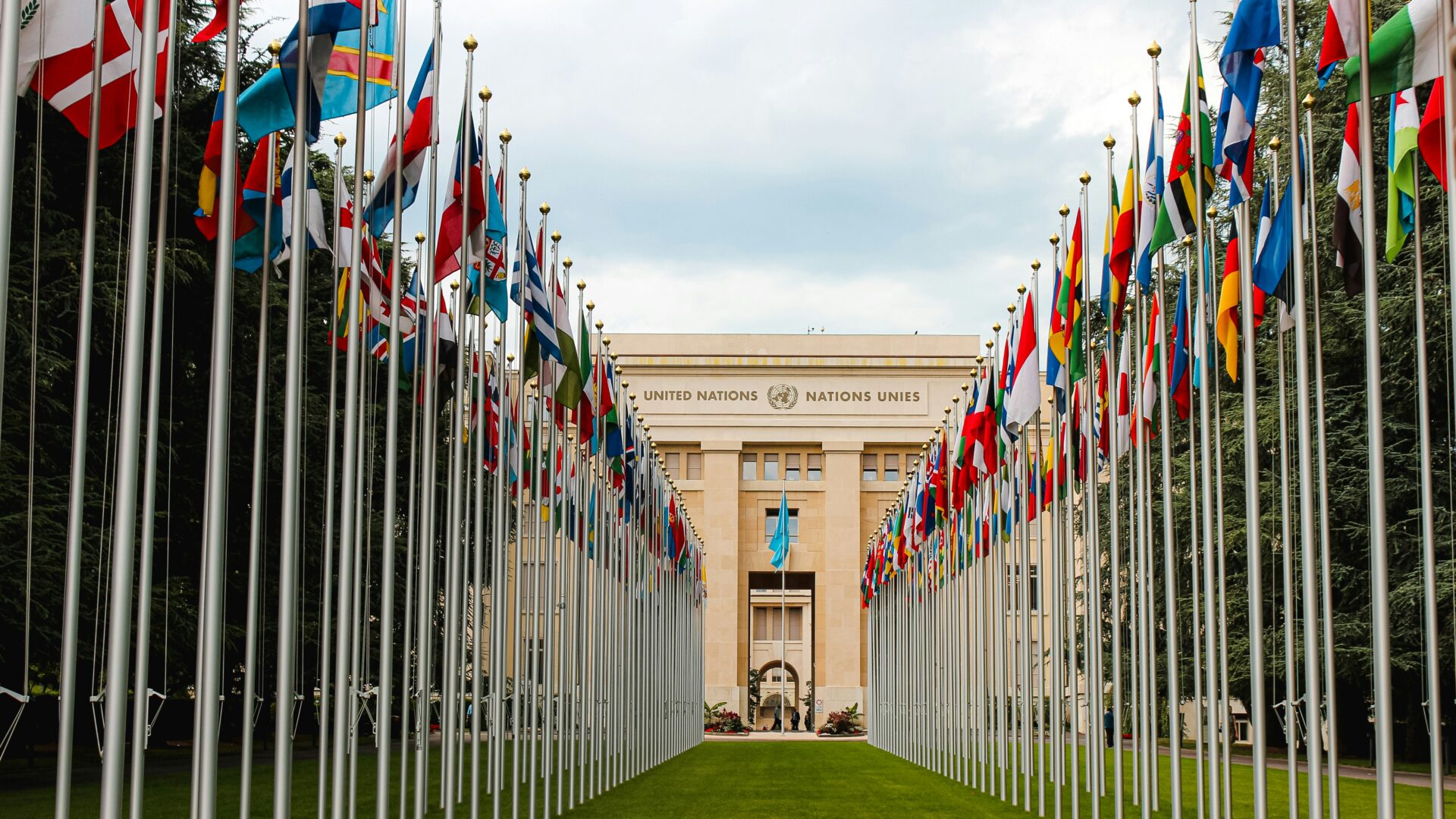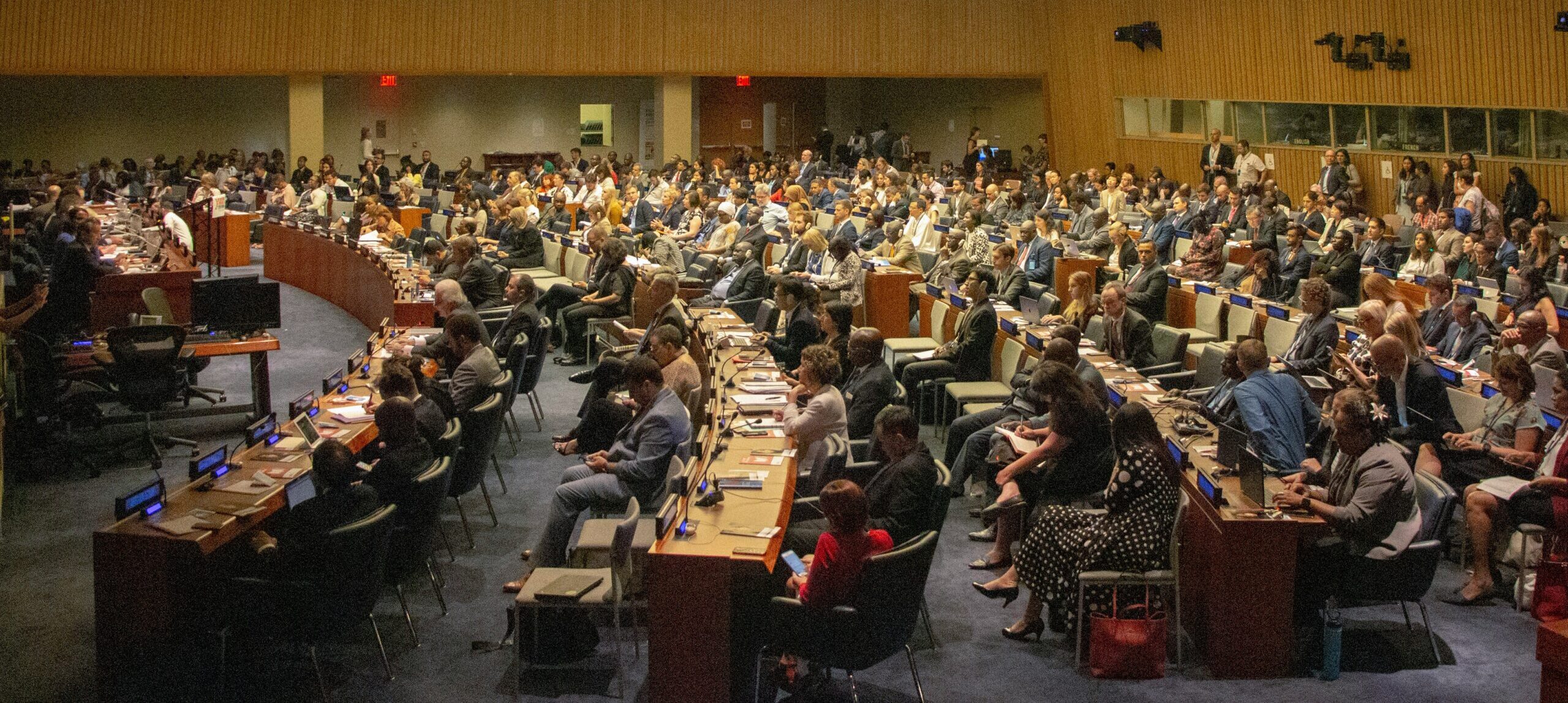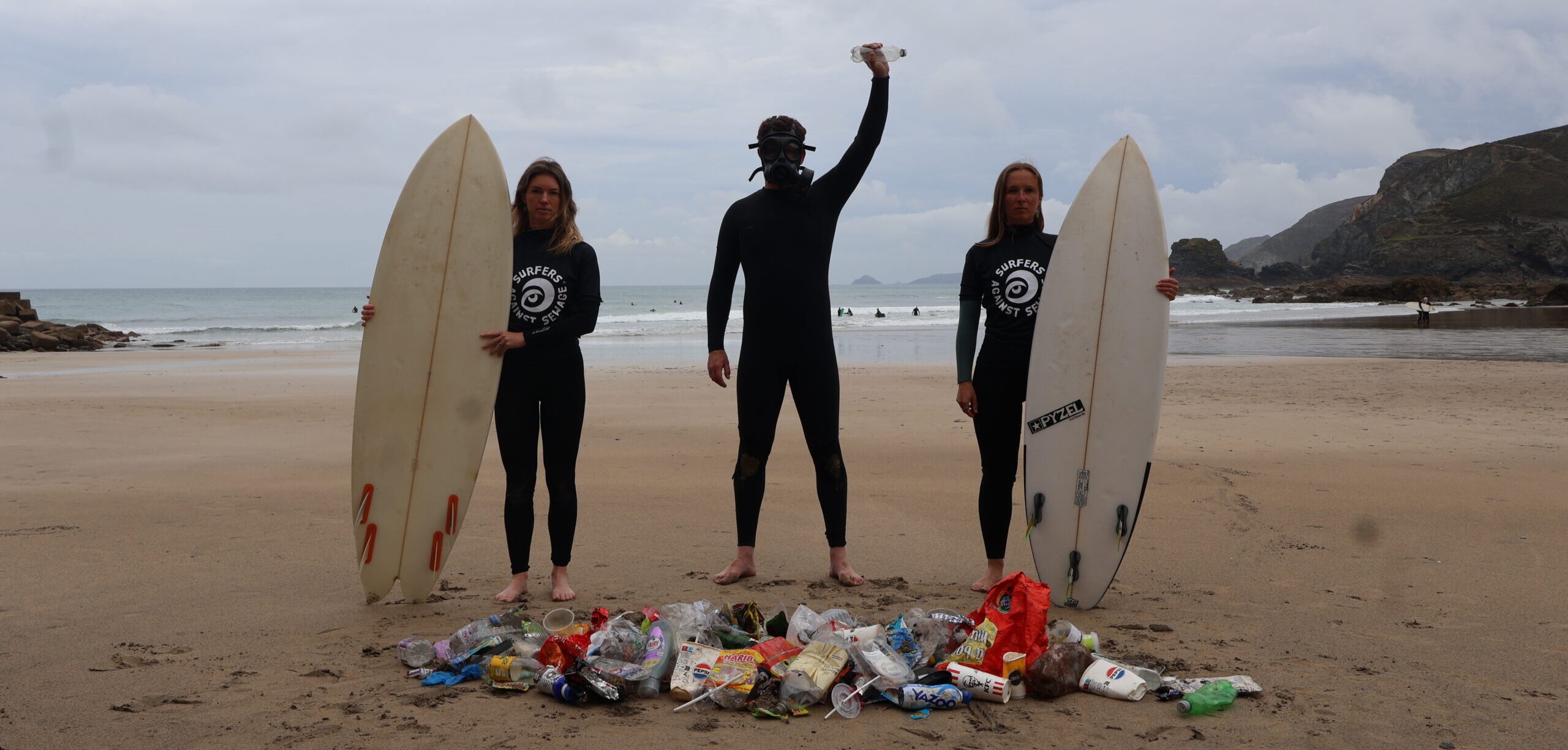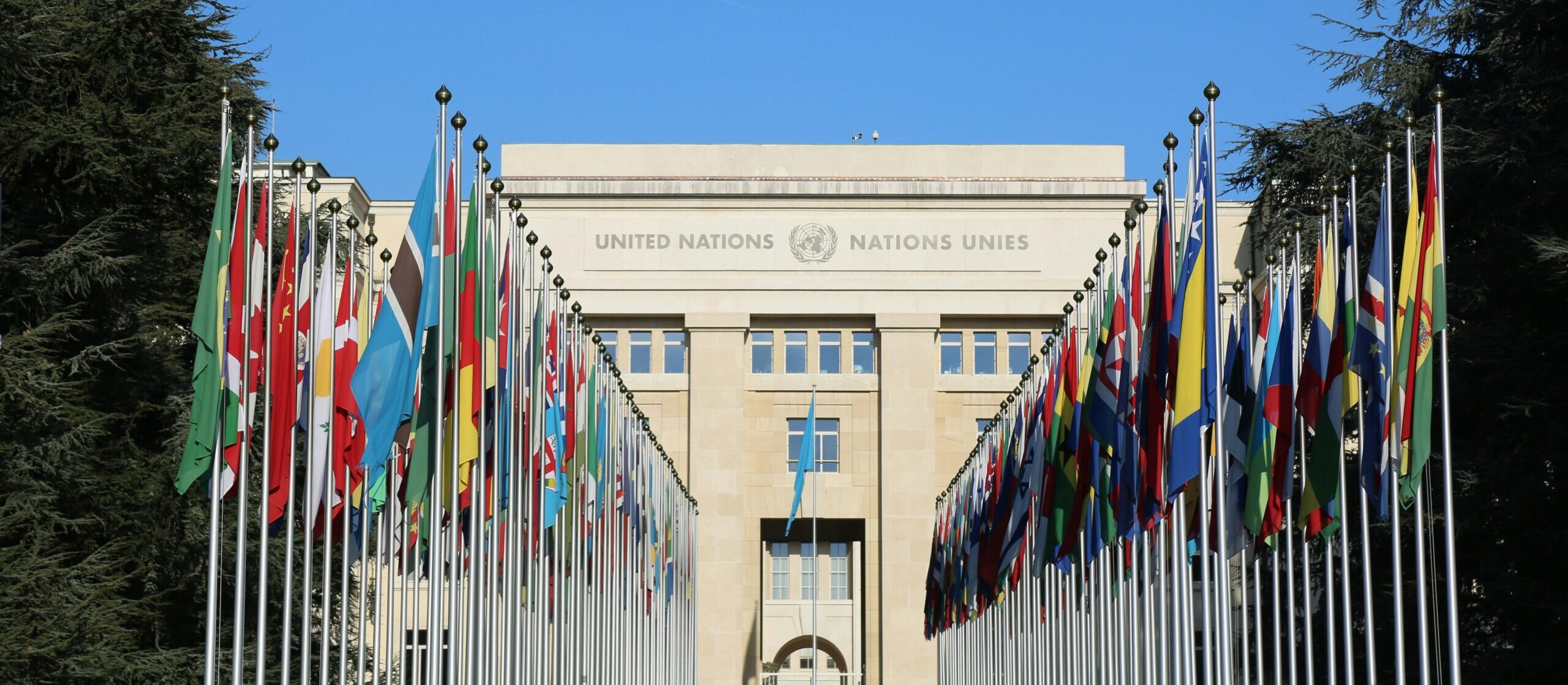
Global Plastics Treaty 2025: Everything you need to know
What is the Global Plastics Treaty, why is it important for ending plastic pollution? And what will Surfers Against Sewage be doing there?
From 5th – 14th August 2025, negotiators from over 145 countries will meet in Geneva to finally try and agree a Global Plastics Treaty to end plastic pollution.
Like climate change, plastic pollution doesn’t care about national borders or lines drawn on a map. And just like surfers, ocean plastic pollution follows the winds and tides meaning plastic pollution can end up just about anywhere in the world. Here in the UK, volunteer ocean activists have been finding plastic polluting UK beaches from as far as away as Florida and Russia.
So to tackle this global problem we need global solutions. This is where the Global Plastics Treaty comes in.
What is the Global Plastics Treaty?
Once agreed the Global Plastics Treaty will be an international, legally binding agreement designed to end plastic pollution. It will set rules for how nations around the world should tackle plastic pollution and set targets that nations will need to meet to try and end the 12 billion tones of plastic pollution that are dumped in the ocean every year.
What’s happened so far?
The process to try and get to an agreed treaty has been a long one. The United Nations first agreed to create a treaty back in 2022 with the backing of 145 Countries. Since then there have been 5 rounds of negotiations around the world.
The fifth round of negotiations held at the end of 2024 was supposed to have been the final round, but thanks to the lobbying of fossil fuel companies and big plastic producing nations the talks fell through with no agreement.

Why did Global Plastic Treaty talks collapse last time?
To be successful we need a Global Plastics Treaty that cuts plastic production at source through legally enforceable targets. But if you’re a fossil fuel company who sells their oil to plastic producers, or if you’re a plastic producer creating billions of tonnes of plastic, and racking in profits by doing so, this is the last thing you want.
That’s why, at the last round of talks, plastic producers and fossil fuel companies sent an army of lobbyists to the talks. They sent so many that plastics lobbyists outnumbered every national delegation including the EU and host country. These lobbyists pushed hard on negotiators from plastic producing nations like Saudi Arabia, and Russia and were able to repeatedly disrupt progress to protect their profits.
This led to several core challenges:
- A fundamental divide persisted between High Ambition Coalition (HAC) countries advocating for an ambitious Plastics Treaty with global rules to reduce plastic production and those preferring voluntary, nationally determined approaches. These were predominantly fossil fuel-producing and plastic-exporting countries, with a vested financial interest in maintaining the status quo, who used skewed economic arguments to sway opinion.
- There was a lack of consensus on what production caps targets could look like. Proposals to cap or phase down primary plastic production met resistance from states with strong petrochemical interests, halting progress on upstream solutions essential for systemic change.
- Disagreements over scope and legal obligations were met. Some delegations pushed for legally binding global measures, while others insisted on flexible, non-binding frameworks, undermining the strength of the proposed treaty. There were also disagreements with the revised “zero draft” as it did not sufficiently reflect the views of many Global South countries, particularly those affected by plastic waste imports, nor did it integrate Indigenous and frontline community perspectives meaningfully which is something delegations hope to spend more time looking at next week in Geneva.
What’s happening this year?
The final round of talks will now take place in Geneva next week. This will be a huge moment with the future of a global approach to tackling pollution on the line. It’s too early to tell exactly what the outcomes of the negotiations will be but one thing we know for sure is that we won’t let the polluters steal the show this time around.
Surfers Against Sewage will be joining hundreds of other environmental and civil society groups in Geneva to drown out the polluting lobbyists and send a clear message to negotiators: They Must End Plastic Pollution.

What do we want to see in the Plastics Treaty?
Surfers Against Sewage is united with other groups around the world in calling for a strong legally binding treaty focused on reducing plastic pollution at source.
Closer to home, we’ve worked with 20 leading UK eNGOs to call for 7 key demands from the treaty, which you can find in this open letter.
They are:
- Cut plastic production – Set ambitious, legally binding global targets to significantly reduce how much new plastic is made.
- Ban harmful plastics and chemicals – Many of these are toxic and unregulated.
- Phase out single-use plastics – Most plastic items are used once, then thrown away.
- Implement better product design – Make plastics easier to reuse, repair and recycle.
- Support waste pickers – 40 million people around the world earn an income collecting, sorting and selling materials for recycling and reuse; they need fair pay, safe working conditions, and a say in solutions.
- Fund real solutions – Especially for those most impacted by plastic pollution.
- Set out strong decision-making rules – So progress can’t be blocked by just a few countries.

What are Surfers Against Sewage doing to ensure a strong treaty?
We’ve joined up and signed Break Free From Plastic Manifesto for a Future Free of Plastic Pollution, and with a coalition of UK environmental and civil society groups written to the UK government, to demand that they stand firm with the global majority calling for bold action and help deliver a strong, legally binding treaty that ends plastic pollution for good.
Next week, Surfers Against Sewage will also be attending the Global Plastics Treaty negotiations alongside our allies from across the globe to drown out the lobbyists and ensure that negotiators hear the voices of the communities fighting plastic not the polluters.
That means we will be doing a few key things:
- Demonstrate global support: SAS will be uniting with the national and international eNGO community to physically show negotiators the global support for a strong Global Plastics Treaty and drown out the polluters.
- Take the voices of our communities to the global stage: As a grassroots, community led organisation Surfers Against Sewage will be representing the voices of the 630 Plastic Free Communities, 200+ Regional Representatives and thousands of volunteers at the negotiations. We’ll be taking a manifesto of community demands awell as props carrying community stories that can’t be missed. To find out what communities on the ground want to see, click here.
- Expose the big polluters: We will be calling out those polluters looking to derail progress or greenwash progress.
- Share what’s happening as the treaty takes place: We will demystify the dialogue, communicate the complex and take you along with us, every step of the way.

Get LIVE updates from the 2025 Global Plastics Treaty talks
To get updates from the Global Plastics Treaty, be sure to follow SAS on Instagram and keep an eye on our live blog where we’ll be posting live updates on negotiations as it progresses.
You can follow live broadcasts of the GPT (Aug 5–14, 2025, Geneva) on The UN Environment Programme Website as they are streaming some negotiation sessions.
Other good pages to follow are:
How can you take action on plastic pollution today?
The toxic tide of plastic pollution is rising. But the people are rising up too. Join The People vs Plastic movement today. Find out how you can take action to expose the scale of the plastic crisis, use your voice and push for change, go plastic-free, and join the community.